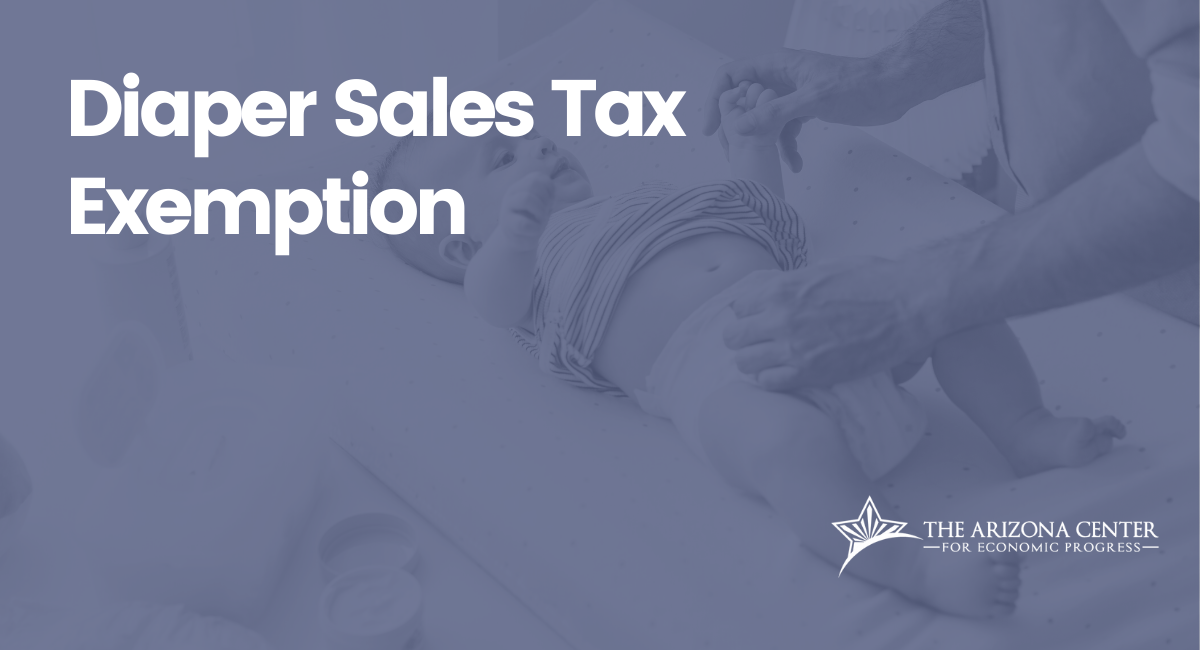
Diaper Sales Tax Exemption Provides Little Help for Low-Income Parents
Instead of eliminating the sales tax on diapers, lawmakers should establish a direct assistance program to cover most or all of the cost of diapers for low-income families. Governor Hobbs and a bipartisan coalition of lawmakers are supporting a proposal that would make all purchases of diapers exempt from sales tax. It is estimated the exemption would reduce state revenues by $16 million annually. That is because all purchases of diapers, regardless of the income level of the parents, would be exempt – applying even to wealthy households that can afford to pay the sales tax.
A better approach would be to take the $16 million annually and establish a direct assistance program that provides free or substantially-free diapers to low-income parents. Parents spend about $80 per month per child on diapers.¹ The sales tax on those purchases amount to about $7 per month.² Appropriating the $16 million annually to a direct assistance program could provide more than 16,600 low-income Arizona parents of infants and toddlers with free diapers for a year. For low-income parents struggling to pay the bills, a $7 monthly savings on sales tax would be nice, but a $80 monthly savings on diapers would be impactful.
A Better Way to Reduce the Cost of Diapers for Low-Income Families
Proposal Cost Savings per child Eliminate the sales tax on all purchases of diapers $16 million $7 per month Provide direct assistance for free diapers for a year to 16,600 low-income parents of infants and toddlers $16 million $80 per month/$960 per year
¹ National Diaper Bank Network
² Based on 8.8% City of Phoenix combines sales tax rate



